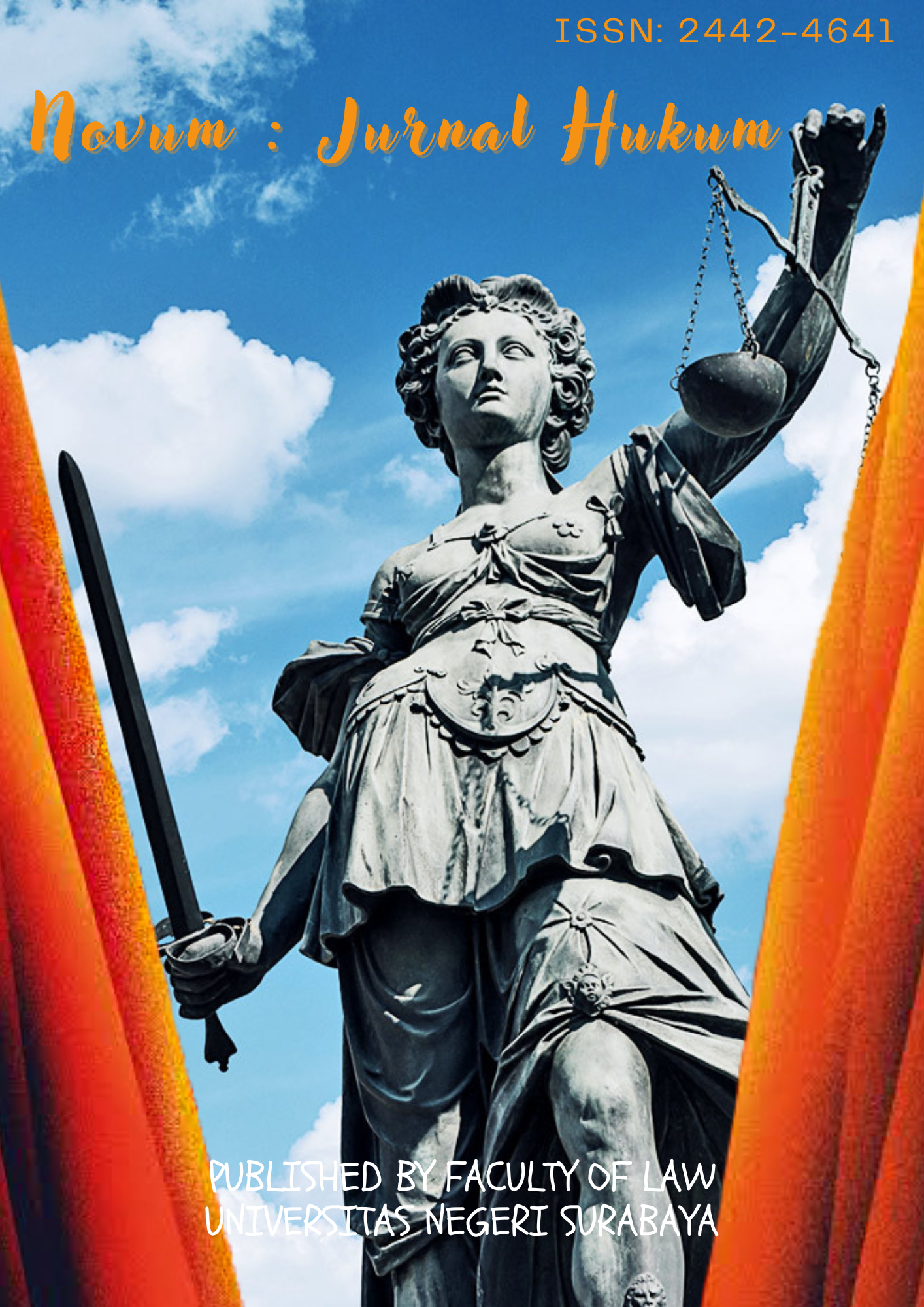Disparity of Judges' Decisions in the Case of Binary Option Affiliator Doni Salmanan Compared to Indra Kenz (Decision Number 1/Pid.Sus/2023/PT Bandung vs Decision Number 117/Pid.Sus/2022/PT Banten)
DOI:
https://doi.org/10.2674/novum.v3i3.56818Abstract
This study examines the issue of criminal disparity in two court decisions involving binary options affiliators: Doni Salmanan and Indra Kenz. The disparity lies in the differences in both principal and additional criminal sanctions, raising concerns about fairness and consistency in sentencing. The research aims to identify the judges’ considerations that led to such disparity and analyze the contributing factors behind the differences in punishment. Using a normative legal research method with statutory and case approaches, the study applies a prescriptive analysis to formulate arguments. The findings show that the primary cause of disparity is the lack of minimum sentencing provisions, which grants judges wide discretion, as the applicable laws only stipulate maximum penalties. Contributing factors include both external elements—such as the nature of the crime, aggravating and mitigating circumstances, the defendant’s demeanor during trial, and motives—and internal factors, particularly the legal framework itself. The study concludes that additional regulation is urgently needed, especially in the ITE Law (Law No. 19 of 2016), to guide the imposition of additional punishments. This is crucial given the increasing number of online trading fraud cases where assets are often returned to perpetrators or confiscated without clear legal direction. Therefore, the formulation of sentencing guidelines for additional penalties is recommended to ensure justice and prevent further harm to the public.
Downloads
Downloads
Published
Issue
Section
License
Copyright (c) 2025 Cahyo Tri Laksono

This work is licensed under a Creative Commons Attribution-NonCommercial-ShareAlike 4.0 International License.
 Abstract views: 300
,
Abstract views: 300
, PDF Downloads: 7
PDF Downloads: 7



